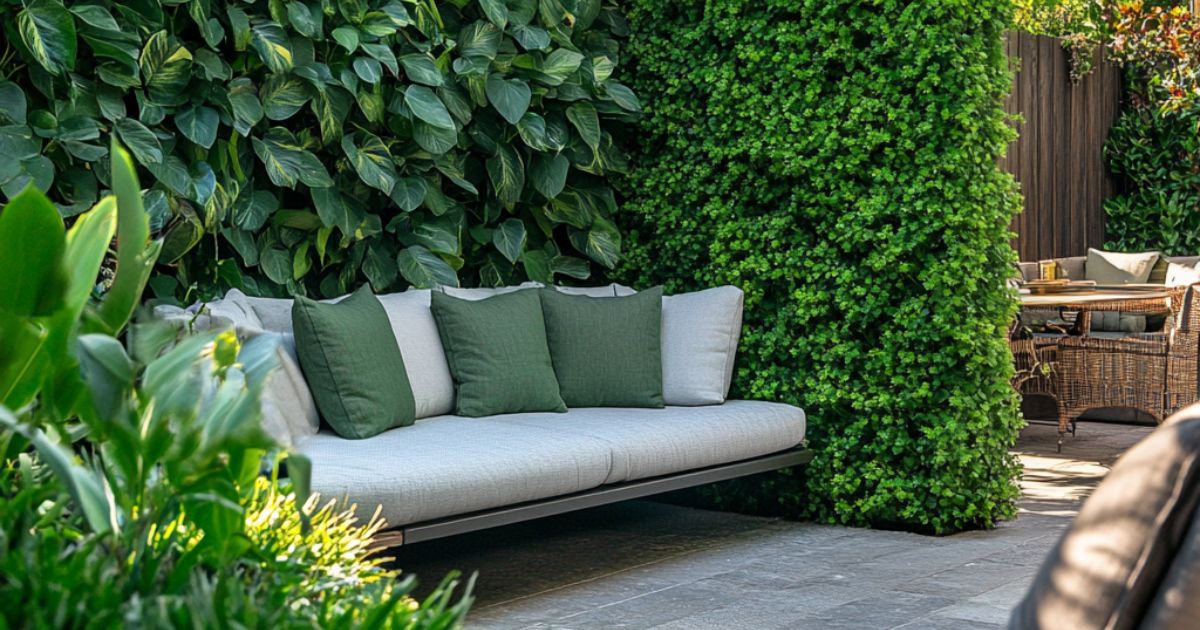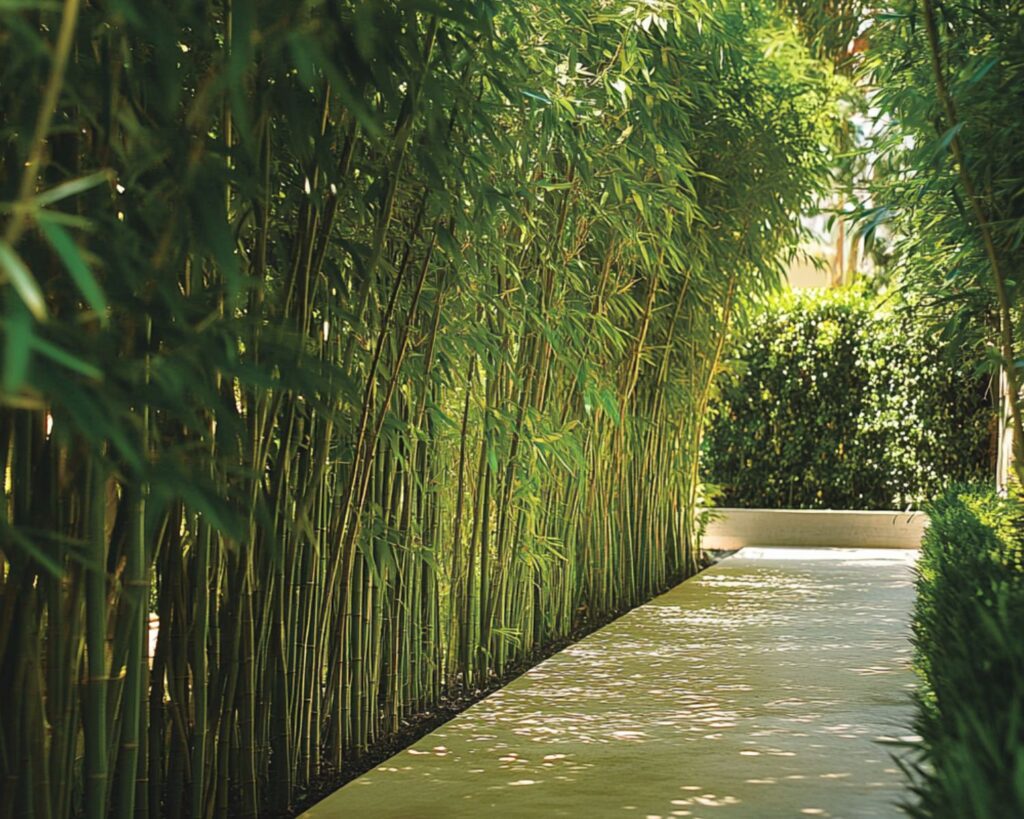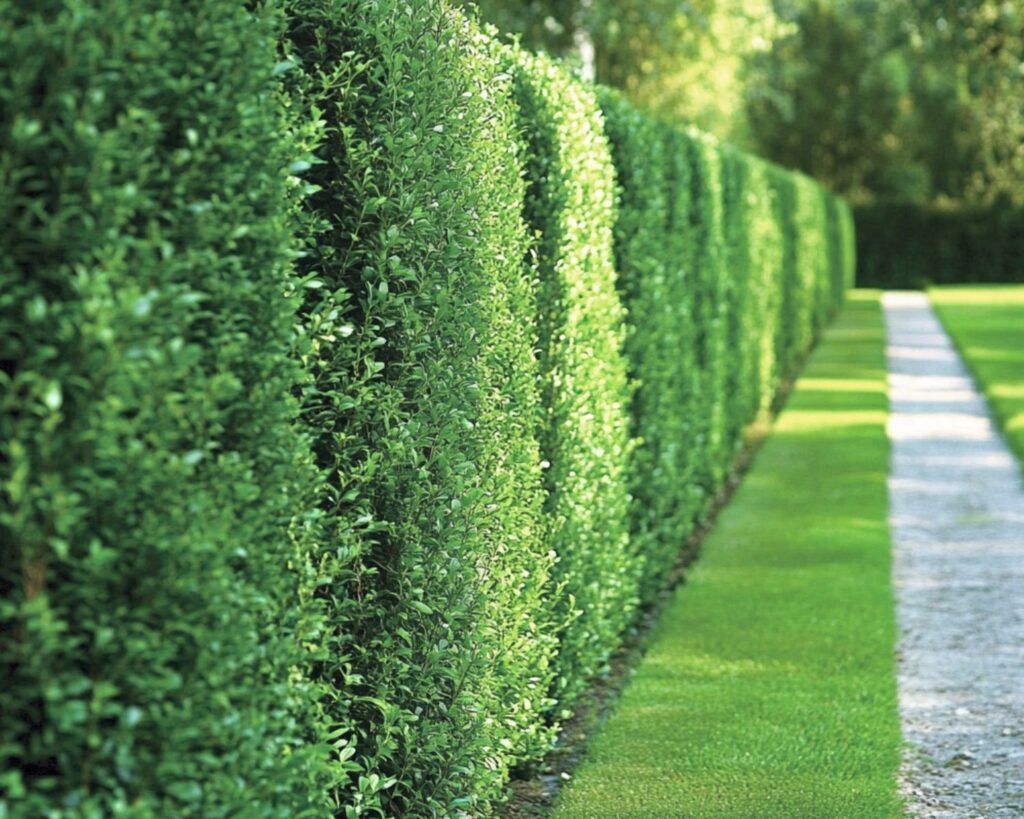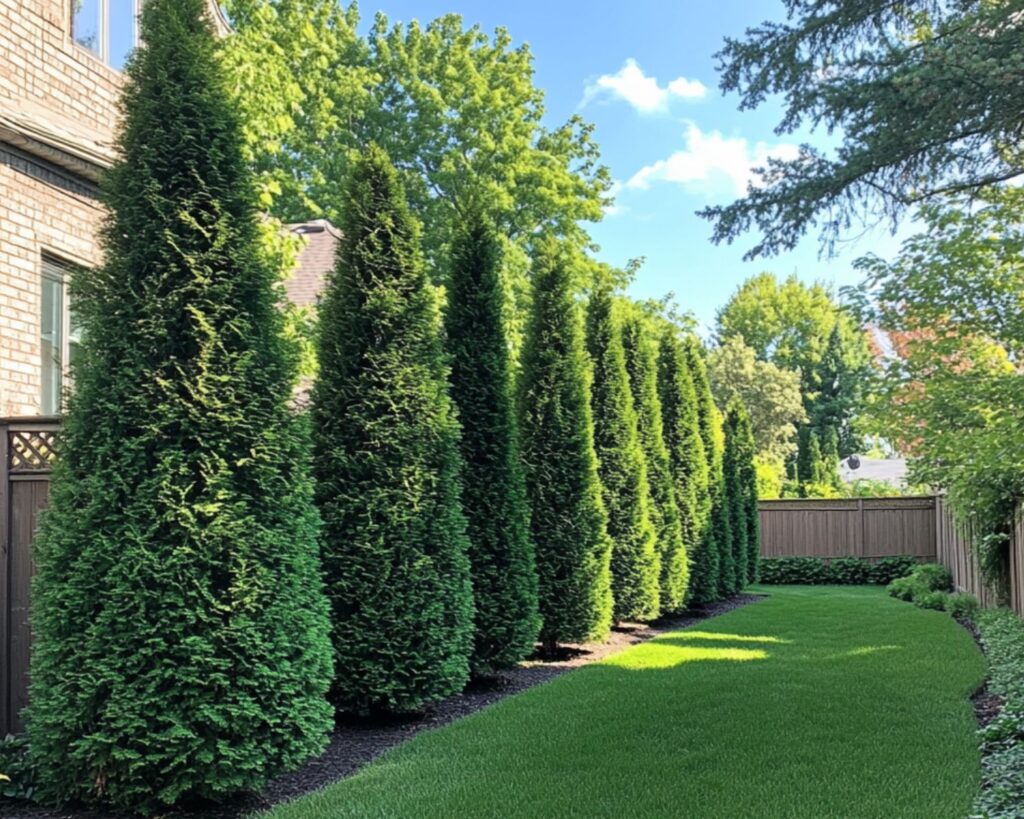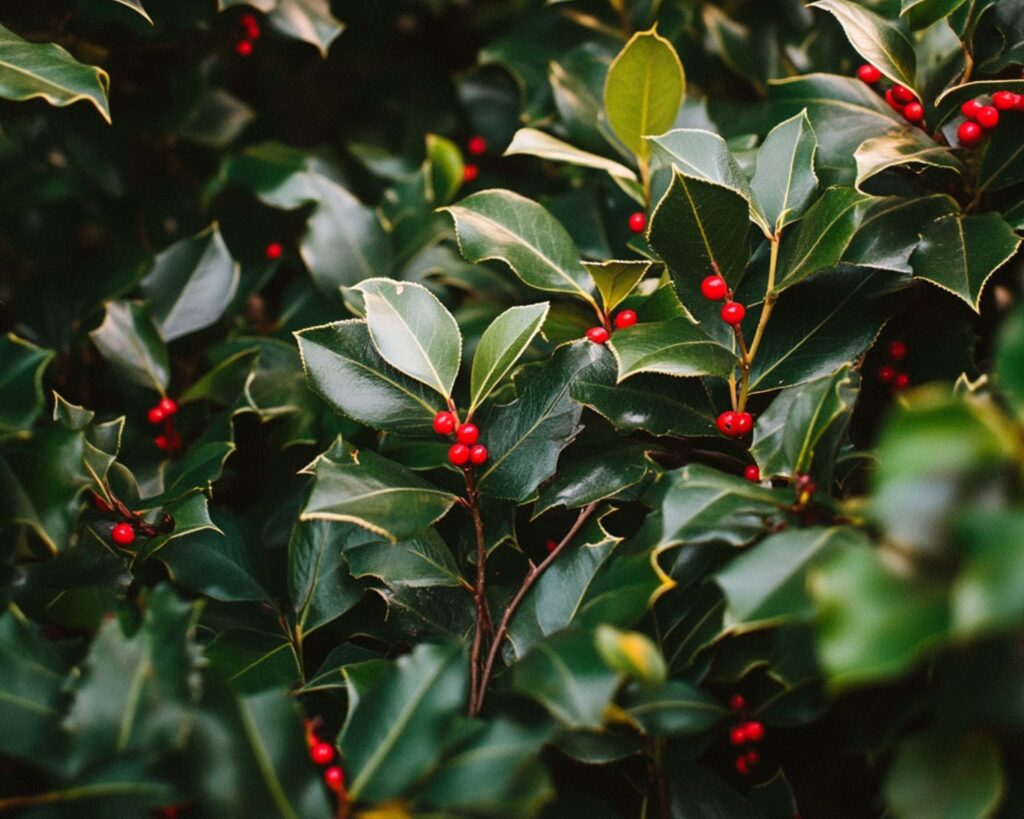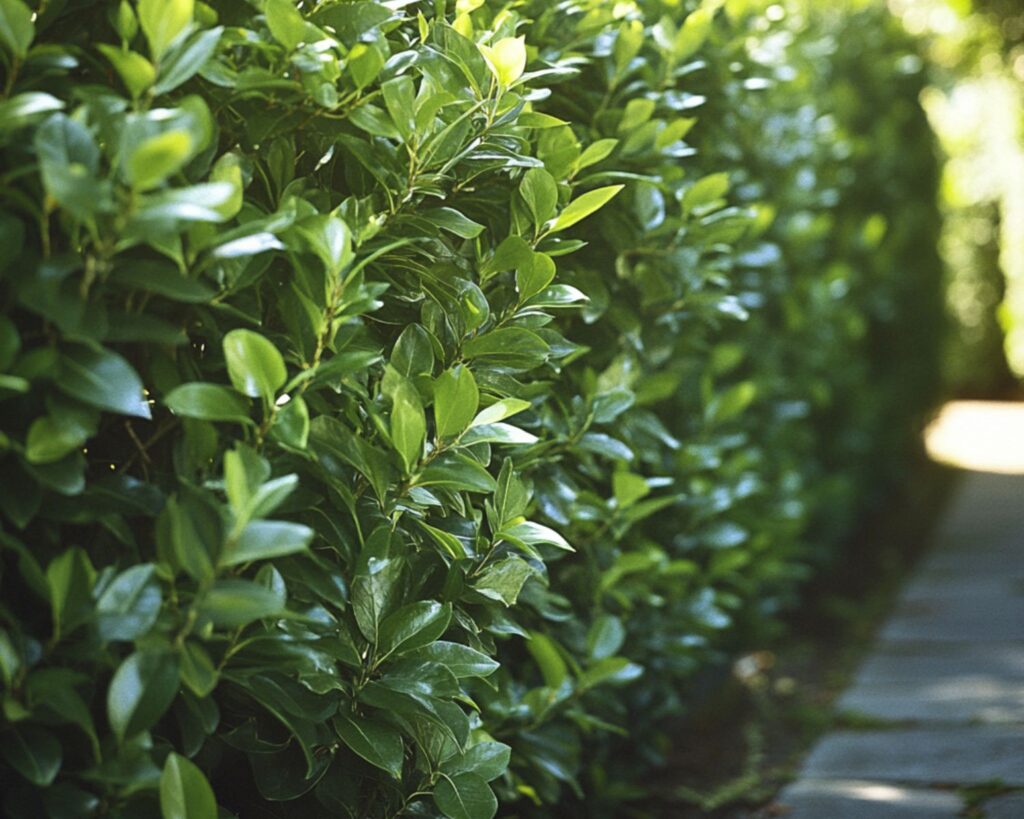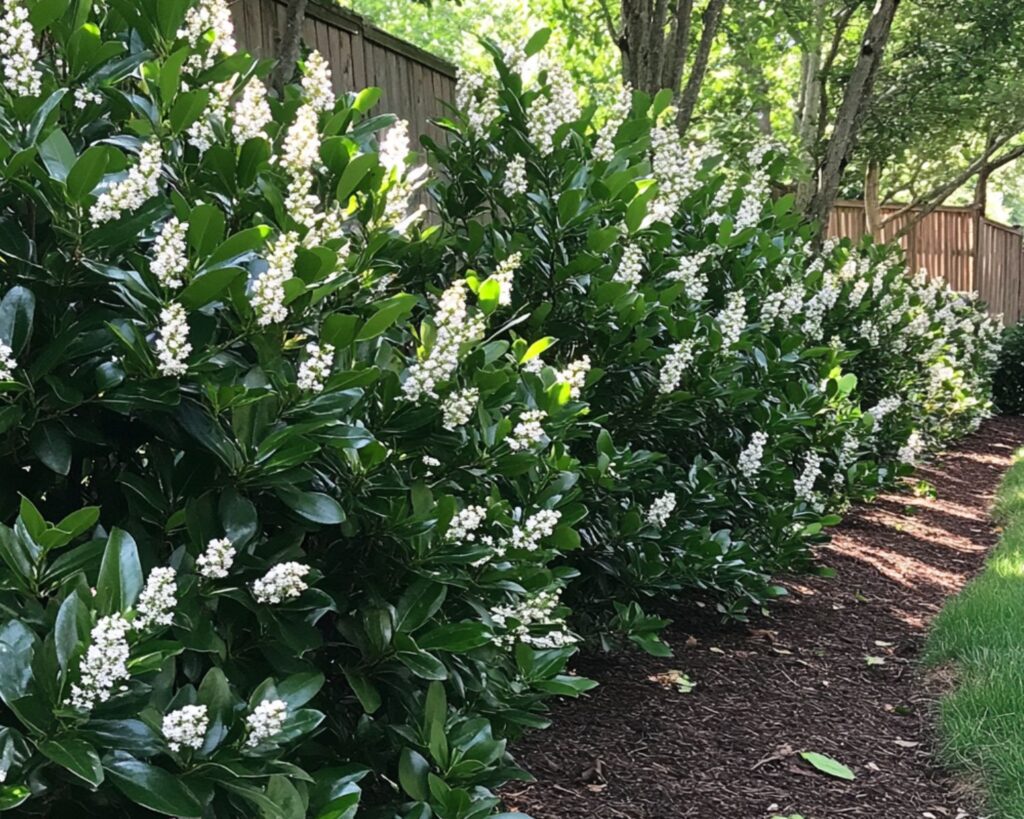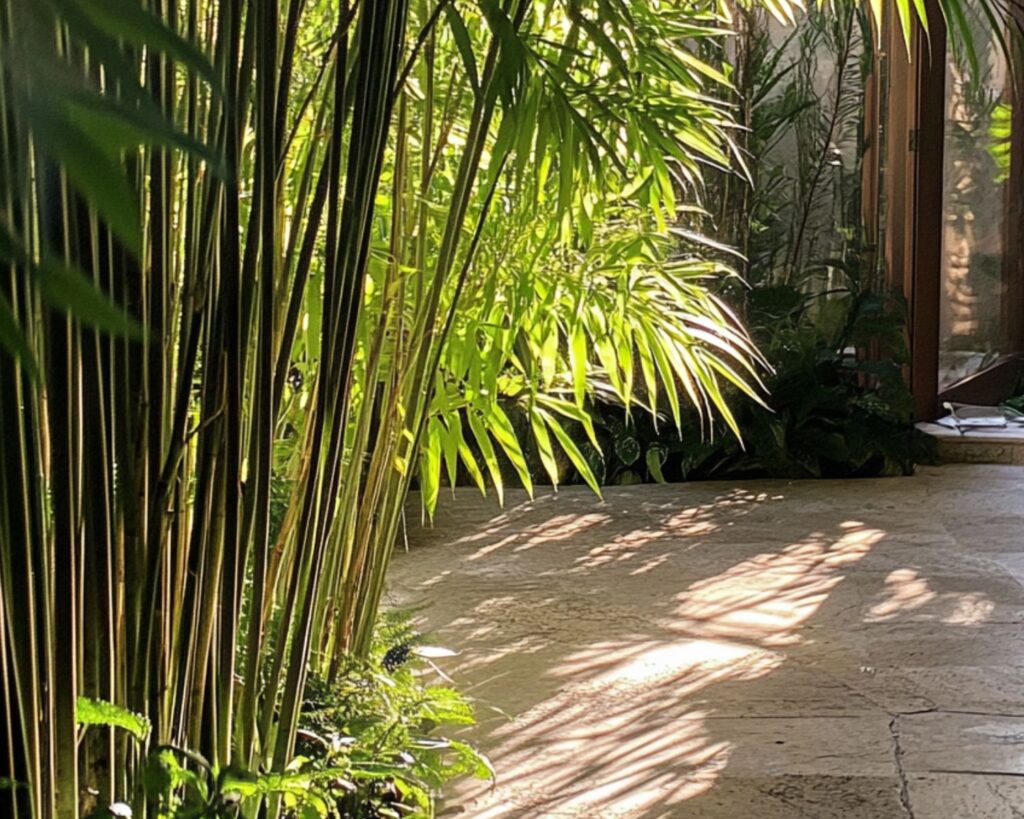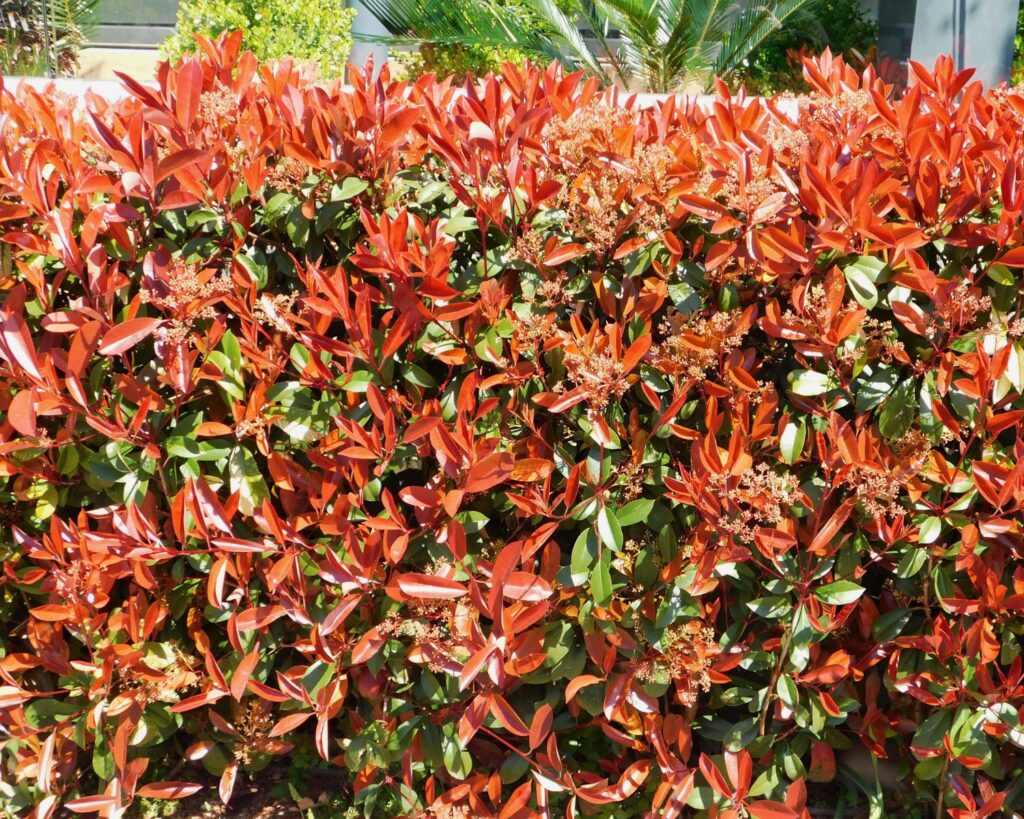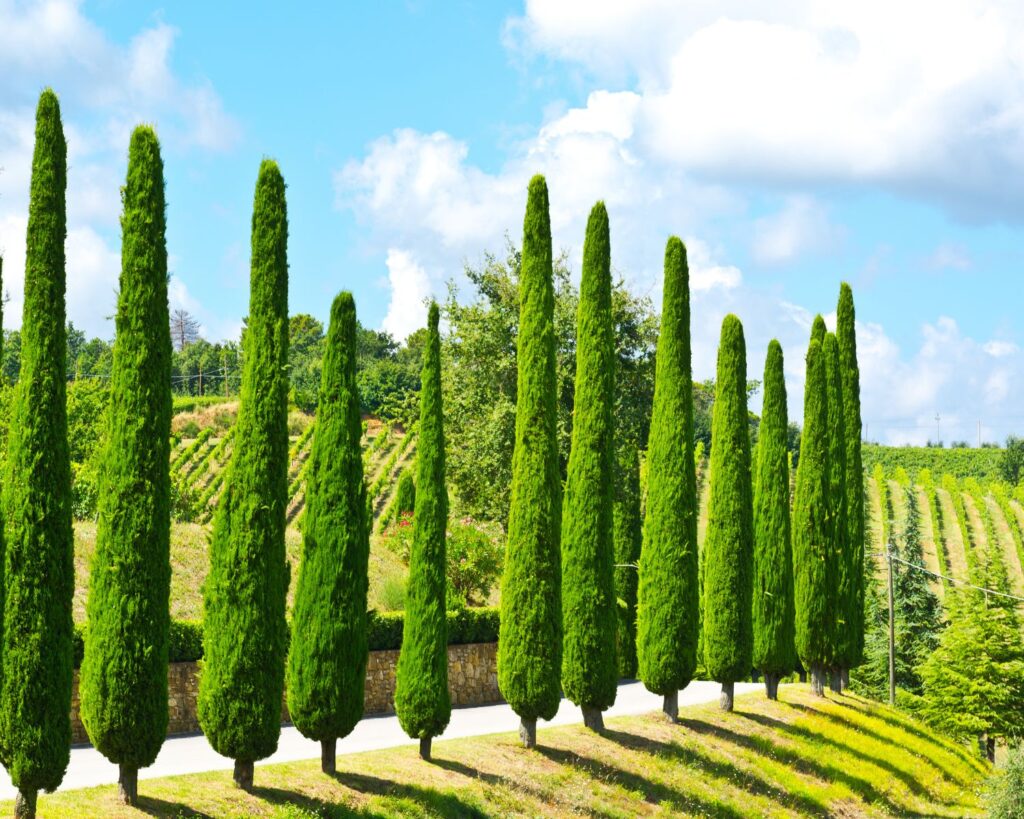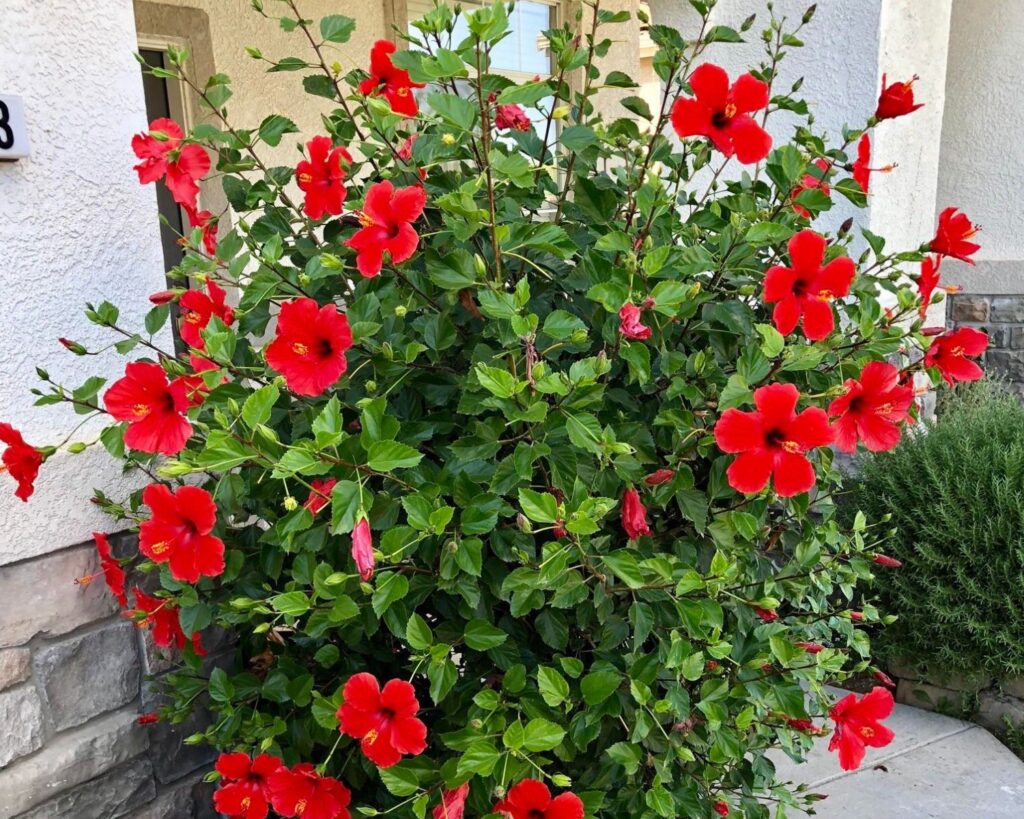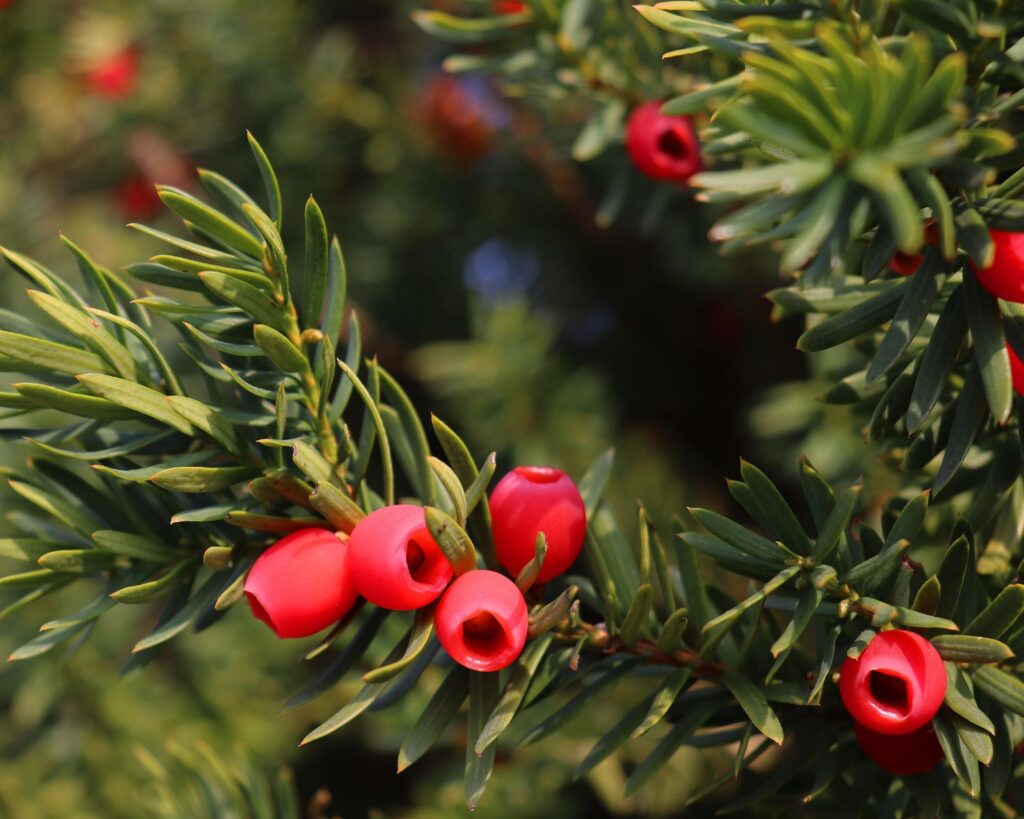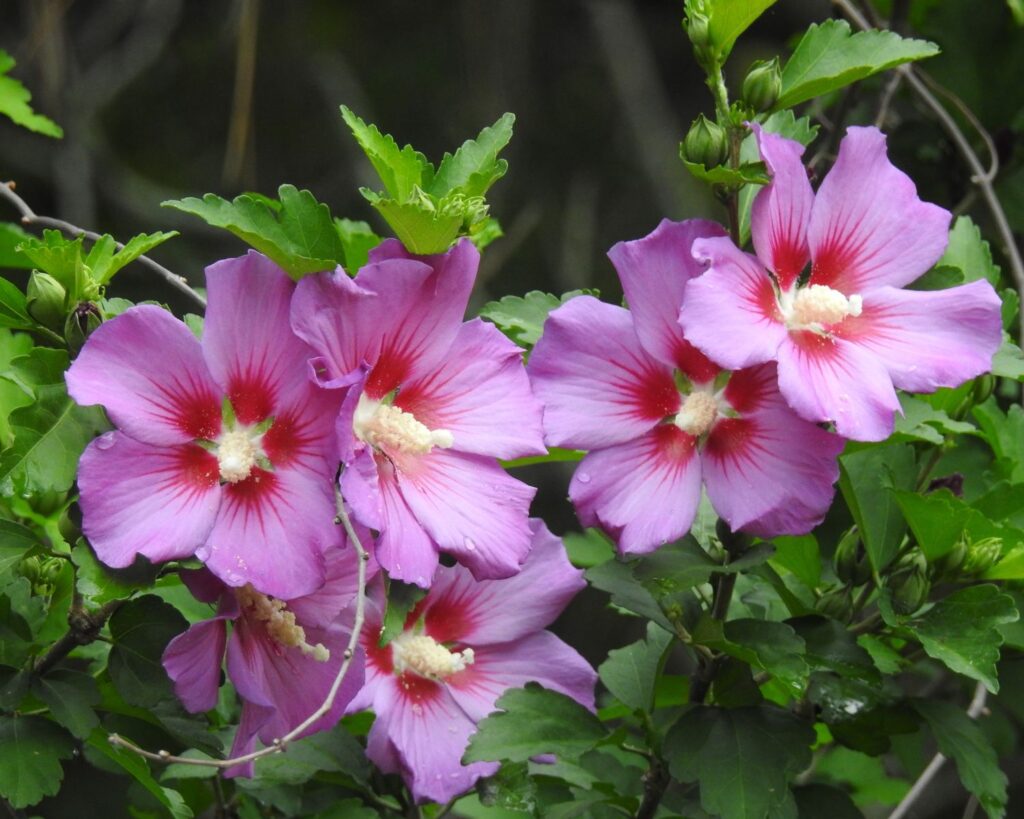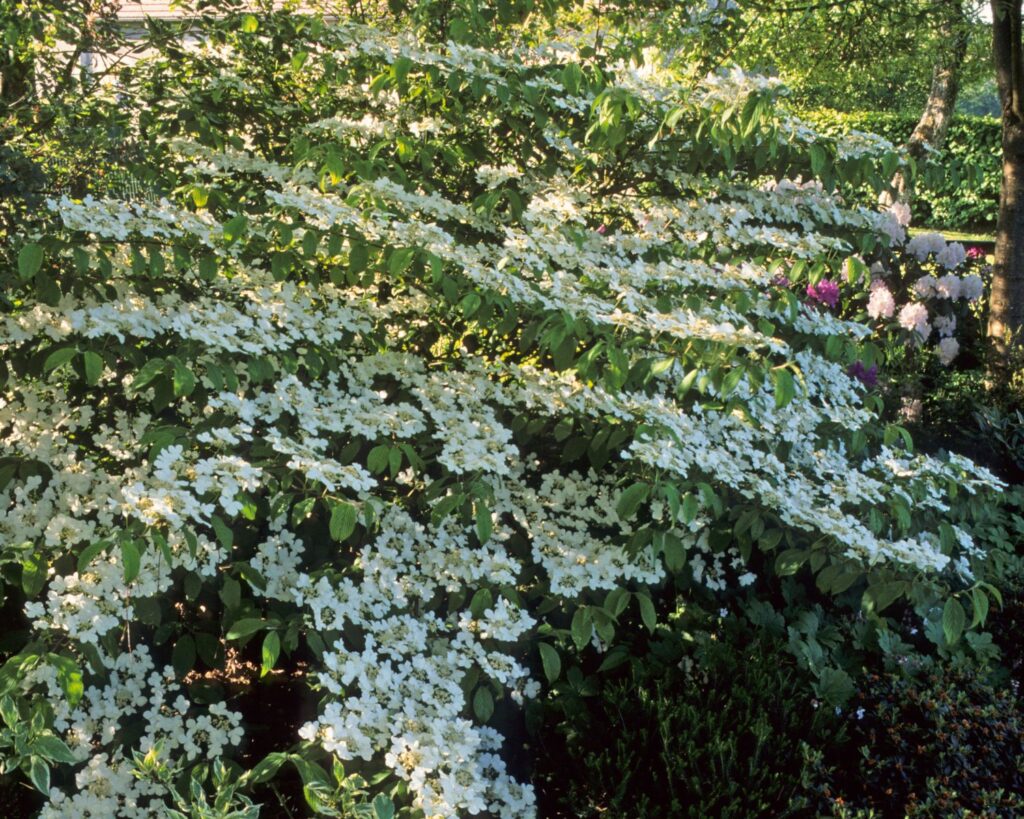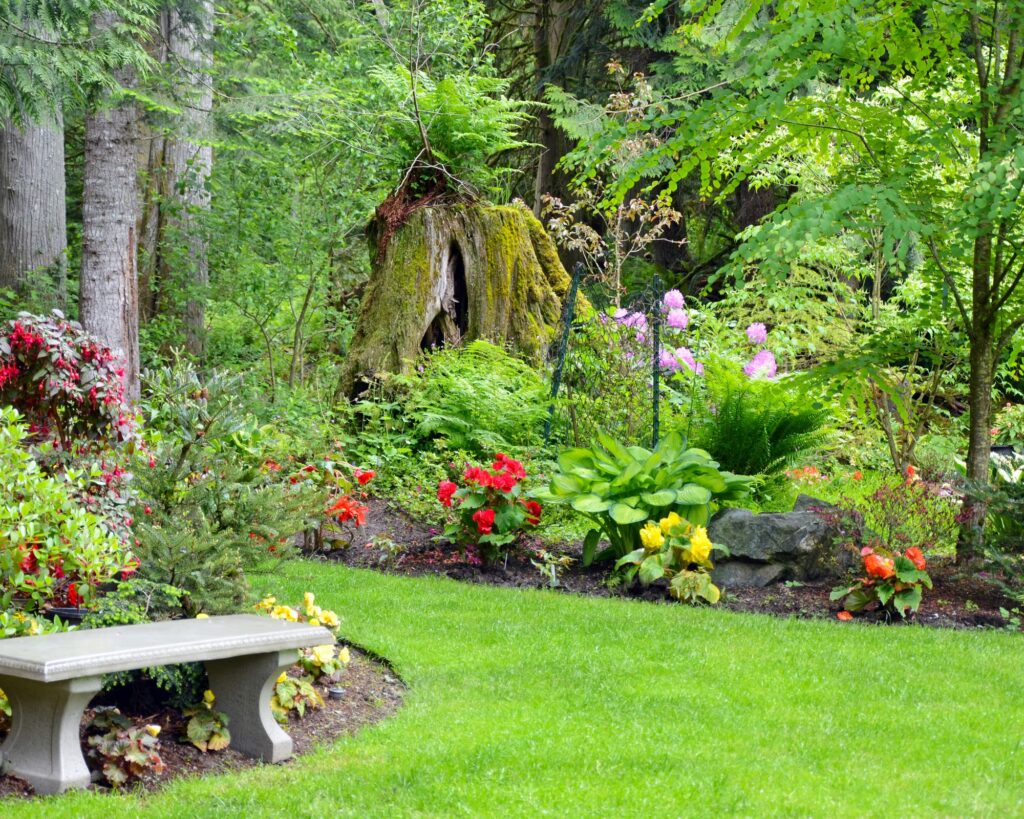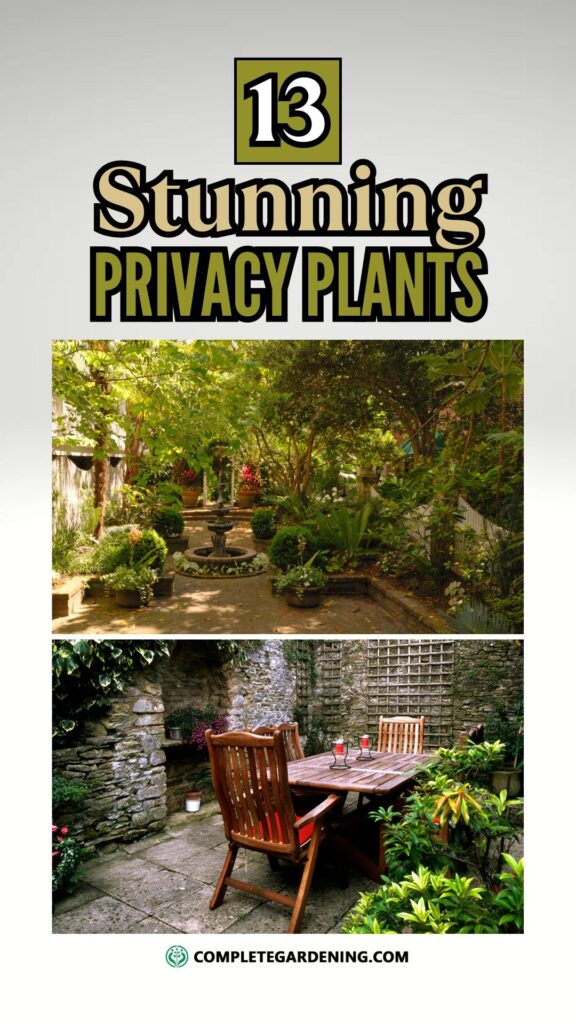Looking to transform your backyard into a private oasis? You don’t need expensive fences or unsightly barriers. Nature has its own beautiful way to shield your space and elevate its look.
With the right plants, you can create stunning green walls that not only block prying eyes but also bring life, charm, and even a little extra tranquility to your home.
In this guide, we’ll reveal 13 gorgeous plants that provide the perfect blend of privacy and beauty for any garden.
1. Bamboo (Bambusoideae)
Bamboo is the go-to choice for fast-growing privacy. It’s an evergreen plant with a rapid growth rate, sometimes reaching up to 3 feet in height each day.
Bamboo creates a thick natural screen that blocks sight and sound. Clumping bamboo varieties are ideal for privacy as they don’t spread invasively.
Best Growing Conditions: Bamboo thrives in well-drained, moist soil and can handle full sun to partial shade. It grows best in USDA zones 5-11, depending on the variety.
2. Boxwood (Buxus)
Boxwood is a classic choice for creating hedges. Its dense, evergreen foliage makes it perfect for forming geometric screens or privacy walls. Boxwood is slow-growing, so it will need pruning to maintain the desired shape.
However, its resilience to different conditions makes it a popular option for formal gardens.
Best Growing Conditions: Boxwoods prefer well-draining, slightly acidic to neutral soil and thrive in zones 5-9. They require partial to full sunlight.
3. Arborvitae (Thuja)
Arborvitae, known for its rich green color and dense foliage, is a common privacy plant in residential areas. Varieties like ‘Emerald Green’ and ‘Green Giant’ grow tall and narrow, forming a natural fence.
They can reach heights of 12-20 feet, providing excellent privacy in small and large gardens alike.
Best Growing Conditions: Arborvitae prefers full sun and well-drained soil. It is suited for USDA zones 2-8.
4. Holly (Ilex)
Holly shrubs and trees are not only perfect for privacy but also add beauty with their glossy green leaves and vibrant red berries.
Varieties like ‘Sky Pencil’ holly grow upright, making them ideal for narrow spaces. The thorny leaves offer additional security and a dense, evergreen screen.
Best Growing Conditions: Holly plants thrive in zones 5-9, preferring acidic, moist, well-drained soil. They can grow in full sun to partial shade.
5. Privet (Ligustrum)
Privet is a fast-growing hedge plant that offers both privacy and greenery. It forms a dense, leafy barrier when pruned regularly.
Japanese privet and glossy privet are popular for creating medium to tall hedges.
Best Growing Conditions: Privets grow well in zones 4-8 and prefer full sun to partial shade. They adapt to various soil types, making them versatile for different garden conditions.
6. Cherry Laurel (Prunus laurocerasus)
Cherry Laurel is known for its glossy, evergreen leaves and white spring flowers. It forms a dense hedge that works well for privacy screens.
Some varieties, like ‘Schipkaensis,’ grow quickly and can reach heights of 10-15 feet.
Best Growing Conditions: Cherry Laurel prefers moist, well-drained soil and grows in full sun to partial shade. It is hardy in zones 6-9.
7. Bamboo Palm (Chamaedorea)
The Bamboo Palm is a tropical choice for those who want an exotic privacy screen. Its lush green fronds create a natural fence and are perfect for indoor privacy, like on a balcony.
Although slower-growing than outdoor bamboo, it is an attractive addition to any garden space.
Best Growing Conditions: Bamboo palms thrive in zones 10-12. They prefer indirect sunlight and moist, well-drained soil.
8. Photinia (Photinia x fraseri)
Photinia is known for its vibrant red new foliage, which turns green as it matures. The contrast of colors makes it a striking privacy plant.
It grows quickly and densely, making it suitable for medium-height hedges or screens.
Best Growing Conditions: Photinia grows best in zones 7-9. It prefers full sun to partial shade and moist, well-drained soil.
9. Cypress Trees (Cupressus)
Cypress trees, particularly the Leyland Cypress, are an excellent choice for tall privacy screens. They have a narrow, columnar growth habit, creating a natural barrier that adds height to the garden.
These evergreen trees maintain their vibrant green color year-round.
Best Growing Conditions: Cypress trees thrive in zones 6-10. They prefer full sun and well-drained soil.
10. Hibiscus (Hibiscus rosa-sinensis)
Hibiscus not only adds a tropical touch to your garden but also provides a beautiful privacy screen. Its large, colorful blooms and lush foliage create a dense barrier.
The plant grows into a thick hedge when pruned regularly.
Best Growing Conditions: Hibiscus prefers full sun and thrives in zones 9-11. It grows well in well-drained soil with moderate moisture.
11. Yew (Taxus)
Yew shrubs are an ideal choice for year-round privacy. These evergreens have dense, dark green foliage that forms a solid barrier.
They can be pruned into formal hedges or allowed to grow naturally for a more relaxed privacy screen.
Best Growing Conditions: Yews grow best in zones 4-8. They prefer partial to full sun and well-drained soil.
12. Rose of Sharon (Hibiscus syriacus)
The Rose of Sharon is a deciduous shrub that brings beauty and privacy to your garden. Its stunning, trumpet-shaped flowers bloom in late summer and fall, attracting pollinators.
When planted in rows, it forms an attractive privacy screen.
Best Growing Conditions: Rose of Sharon grows well in zones 5-9. It prefers full sun to partial shade and well-drained soil.
13. Viburnum (Viburnum spp.)
Viburnum species vary in height, leaf shape, and flower color, making them a versatile choice for privacy. Their dense foliage and fragrant blooms provide both beauty and coverage.
Some varieties, like Viburnum tinus, are evergreen, offering year-round privacy.
Best Growing Conditions: Viburnum plants thrive in zones 3-9, depending on the variety. They prefer full sun to partial shade and well-drained soil.
Tips for Planting and Maintaining Privacy Plants
When planting privacy plants, consider the following tips:
Spacing: Ensure adequate spacing between plants to allow them to grow into their full size. Crowding them can lead to competition for nutrients and sunlight.
Watering: Young plants need regular watering to establish their roots. Once mature, many of these plants are relatively drought-tolerant.
Pruning: Regular pruning helps maintain the shape and density of your privacy screen.
Soil Preparation: Most privacy plants prefer well-drained soil. Amending the soil with organic matter like compost can improve its structure and fertility.
Incorporating natural privacy into your garden is more than just creating a barrier; it’s about enhancing the overall ambiance of your outdoor space.
By carefully selecting plants that suit your environment and aesthetic, you can craft a living screen that adds both charm and function.
These 15 plant options provide a range of colors, textures, and heights to suit any backyard oasis, transforming it into a serene retreat while keeping prying eyes at bay.
So, get ready to plant and watch as nature takes its course in shaping a beautiful, private haven.
